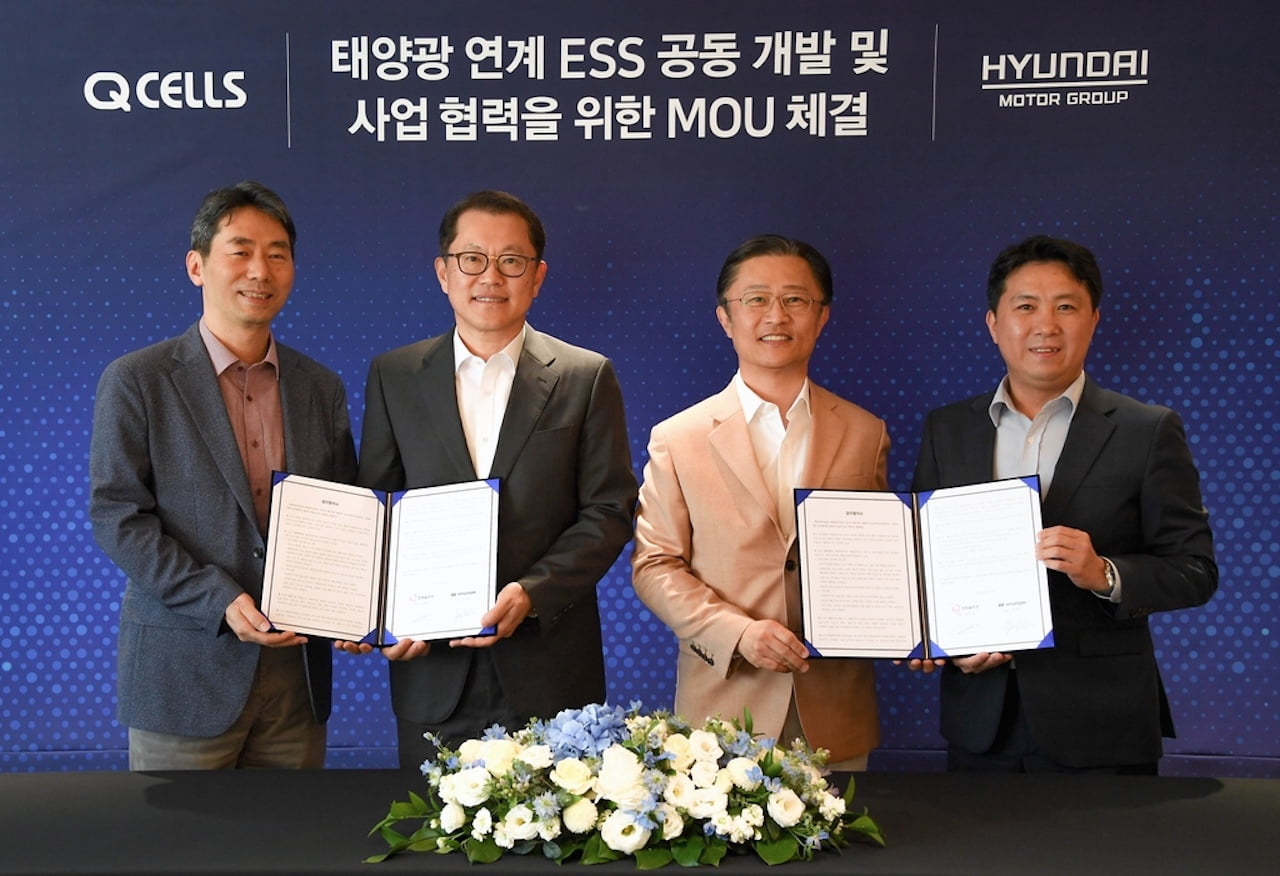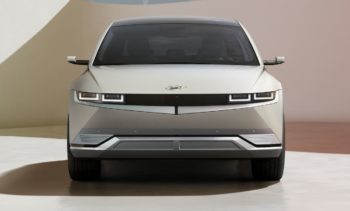By Aditya Srinath
Electric Vehicles face the problem of battery life degradation after a few years of usage. Degraded batteries are replaced with new battery packs while the old ones are disposed. At this stage, safe disposal of used batteries remains a big concern for all carmakers and they’ve been looking for solutions around the world.
Hyundai Motor Group has found a way to solve this effectively by joining hands with Hanwha Q Cells. Hyundai Motor Group and Hanwha Q cells have signed a Memorandum Of Understanding (MOU) to jointly develop energy storage systems based on used electric car batteries. This move is believed to benefit both the companies as it helps Hyundai Motor Group to do away with used batteries efficiently and will ensure a consistent supply of batteries for Hanwha Q Cells to develop an energy storage system (ESS).
Hanwha Q Cells, an energy solution provider is a subsidiary of Hanwha Group whose businesses span across the fields of chemicals, aerospace & mechatronics. Hanwha Q Cells have been exploiting the growing demand for solar power around the world. As the demand for renewable energy grows, companies are seeking means to store these energies efficiently. The used batteries of electric vehicles can be re-used to store large voltages of Photo-voltaic energy and can serve as an Energy Storage System. These storage systems mainly use lithium-ion battery cells and the battery packs in electric vehicles suits their requirement. This usage of batteries can help them price their storage systems aggressively and will help them have an edge over their competitors.

As the world progresses towards an electric future, the demand for effective energy storage systems will increase. While the global usage of ESS remains at 3 GWh as of 2017, it is said to spike to 379 GWh by 2040. To sustain such growth, energy companies need a constant supply of lithium-ion battery cells. This can serve as a Win-Win for electric mobility companies and energy solution companies. Hanwha are targeting the North American and European markets with their co-developed ESS solutions and are aiming to demonstrate its effectiveness in Hanwha Q Cell’s Solar power station in Germany. These solutions will accelerate the growth of electric mobility immensely.
Display image provided by Hyundai Motor Group.

![Compact Hyundai ‘Ioniq 3’ to be produced in Singapore in 2025 [Update]](https://electricvehicleweb.com/wp-content/uploads/2022/01/2025-Hyundai-Ioniq-3-rendering-front-350x220.jpg)
![Hyundai Ioniq 6 spied in production form for the first time [Update]](https://electricvehicleweb.com/wp-content/uploads/2021/09/Hyundai-Ioniq-6-front-rendering-350x197.jpg)
